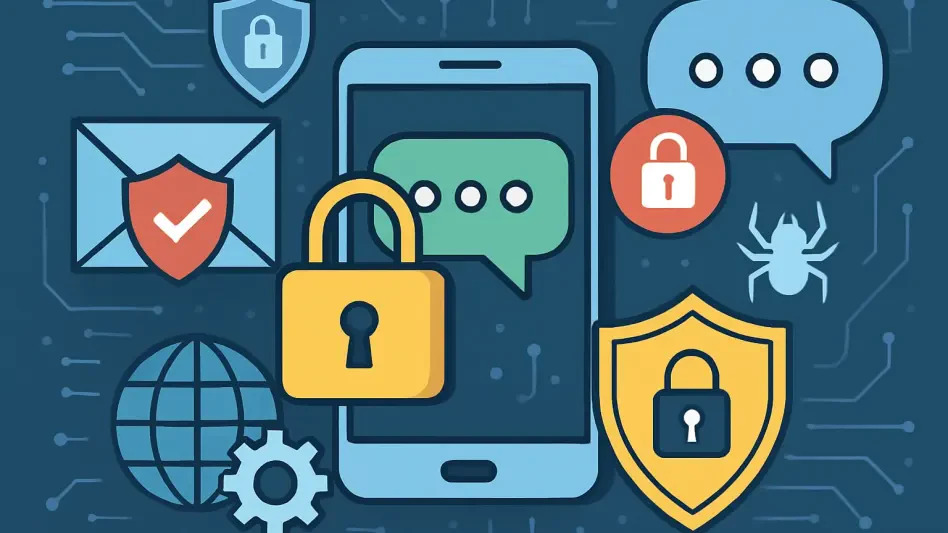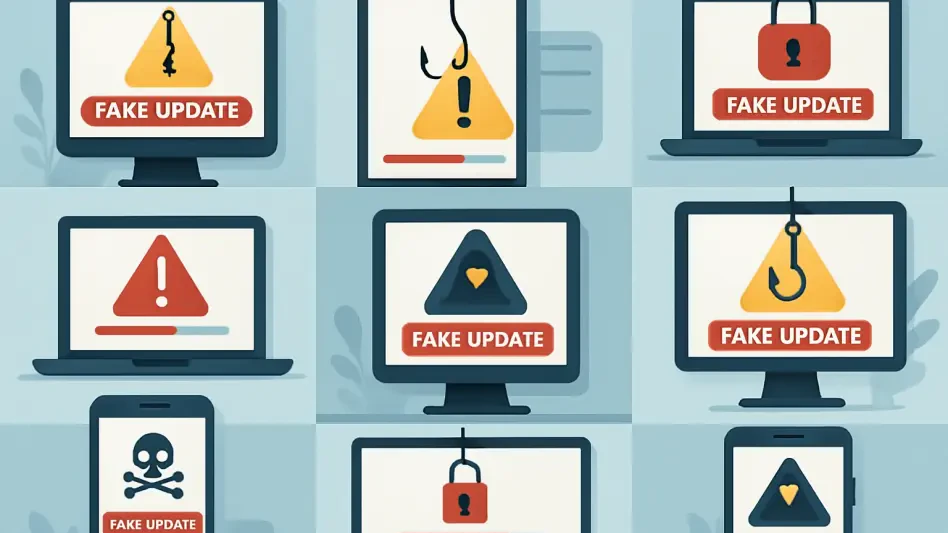The Federal Bureau of Investigation (FBI) has sounded an alarm to all Gmail users, urging them to exercise extreme caution in light of a surge in highly sophisticated phishing attacks. Utilizing artificial intelligence (AI), cybercriminals have developed scams that are nearly impossible to detect, making it crucial for users to avoid clicking on anything in unsolicited emails or messages. Gmail, being one of the most widely used email services in the world, has become a prime target for these AI-driven phishing campaigns, and even seasoned users are at risk of falling victim to these deceptive attacks. These threats can compromise entire Google accounts, exposing sensitive data stored across multiple platforms.
The increase in AI-powered phishing attacks poses a significant risk, as they mimic legitimate communications convincingly. This alarming trend calls for heightened awareness and proactive measures to protect against potential breaches. Cybersecurity specialists have observed a significant rise in phishing attempts, with the Hoxhunt Phishing Trends Report indicating a 49% surge in attacks capable of bypassing security filters since early 2022. AI-generated phishing emails now comprise nearly 5% of total phishing threats, further emphasizing the importance of robust security measures.
Activate Two-Factor Authentication (2FA)
Given the escalating threat, activating two-factor authentication (2FA) is one of the most effective steps users can take to secure their Gmail accounts. Google Authenticator and security keys offer an added layer of protection by requiring a second form of verification, making it more challenging for cybercriminals to gain access. It is advisable to avoid SMS-based 2FA, as it is more susceptible to interception by hackers who can exploit vulnerabilities in telecommunications networks. With 2FA in place, even if your password is compromised, attackers would still need the second factor to access your account.
The growing sophistication of AI-driven phishing attacks underscores the necessity of implementing robust security measures like 2FA. As AI tools enable cybercriminals to craft highly convincing fake websites and emails, the additional security layer provided by 2FA can significantly reduce the risk of unauthorized access. This step is especially critical for users with multiple Google services linked to their Gmail accounts, as the compromise of one account can lead to a domino effect, jeopardizing personal and sensitive data across platforms.
Implement a Password Manager
Password managers are indispensable tools in the battle against AI-driven phishing attacks, as they help users securely store and autofill their credentials only on legitimate sites. These tools prevent accidental logins on phishing pages by requiring exact URL matching before entering any credentials. By keeping track of numerous account passwords, a password manager ensures that each account has a strong, unique password, further bolstering security. This feature is particularly beneficial in the context of AI-generated phishing emails, which can easily deceive users by mimicking legitimate websites.
In addition to improving security, a password manager simplifies the user experience by relieving the burden of remembering multiple complex passwords. The ease of use provided by these tools enables users to maintain strong passwords without sacrificing convenience. Given the proliferation of AI-driven scams designed to steal login credentials, implementing a password manager is a proactive step that can significantly enhance the security of your Gmail account and other linked services.
Frequently Review Your Account
Regularly monitoring your Gmail account for any unauthorized access attempts is crucial in the fight against AI-driven phishing attacks. Conducting a Google Account Security Checkup can help identify potential security issues and provide recommendations for enhancing account protection. By enabling alerts for suspicious login activities, users can receive real-time notifications of any unauthorized access attempts, allowing them to take immediate action to secure their accounts. Prompt responses to these alerts are essential in mitigating the risks associated with phishing attacks.
Staying vigilant and frequently reviewing your account can help detect anomalies that may indicate a security breach. In an environment where AI-driven phishing attacks continuously evolve, maintaining an active role in monitoring your account’s security is paramount. With the FBI’s warning about the increasing sophistication of these attacks, users must remain diligent in protecting their accounts by regularly checking for unauthorized activity and responding promptly to any security alerts.
Refrain from Clicking Links in Emails
One of the most effective strategies to avoid falling victim to phishing scams is to refrain from clicking on links in emails, especially those from unknown or unsolicited sources. If you receive a security-related email, it is safer to open a new browser window and visit the website directly rather than clicking on any links within the email. This extra step can help verify the authenticity of the message and prevent accidental redirection to fraudulent sites designed to steal your credentials. Being particularly cautious with emails requesting urgent actions, such as password resets or account verifications, can further enhance your security.
AI-powered phishing attacks can create highly convincing replicas of legitimate websites, making it imperative for users to double-check URLs before entering their login details. Hackers leverage AI to design emails that are indistinguishable from authentic communications, increasing the likelihood of users falling for these scams. By adopting the habit of not clicking on email links and instead navigating directly to the website, users can significantly reduce the risk of compromising their accounts and sensitive information.
Be Cautious of AI-Generated Scams
AI-generated phishing attacks are becoming increasingly sophisticated, with the ability to create perfect replicas of real websites and emails. This makes it essential for users to be cautious and verify the authenticity of any communication that appears too polished or convincing. Taking a moment to scrutinize URLs and cross-checking information can help identify potential scams and prevent unauthorized access. Awareness of the prevalence and sophistication of AI-generated phishing scams can aid users in recognizing and avoiding these threats.
The evolving landscape of cyber threats, driven by advancements in AI, requires heightened vigilance and adaptive security practices. Warmenhoven, a cybersecurity expert, highlighted that even novice hackers can now create highly convincing scams using AI tools. The best defense against these sophisticated attacks is a combination of caution, vigilance, and proactive security measures. By staying informed and implementing the outlined steps, users can protect their Gmail accounts and safeguard their digital lives against the growing menace of AI-driven phishing attacks.
Final Thoughts on Staying Secure
The Federal Bureau of Investigation (FBI) has issued a warning to all Gmail users, advising them to be extremely cautious due to a spike in sophisticated phishing attacks. Cybercriminals are now using artificial intelligence (AI) to craft near-undetectable scams, making it essential for users to avoid clicking on anything from unsolicited emails or messages. Gmail, a globally popular email service, has become a major target for these AI-driven phishing attempts, putting even experienced users at risk of falling for these cunning deceptions. Such threats can compromise entire Google accounts, exposing sensitive data across various platforms.
The rise in AI-powered phishing presents a significant threat, as these emails closely mimic genuine communications. This concerning trend necessitates increased awareness and proactive measures to thwart potential breaches. Cybersecurity experts have noted a sharp escalation in phishing attempts, with the Hoxhunt Phishing Trends Report highlighting a 49% increase in attacks that evade security filters since early 2022. AI-created phishing emails now make up almost 5% of all phishing threats, underscoring the urgent need for strong security measures.







